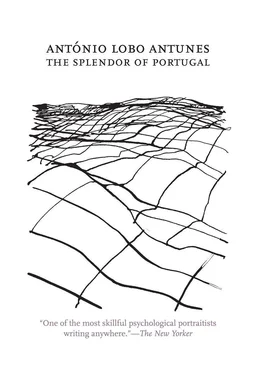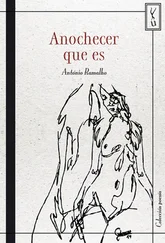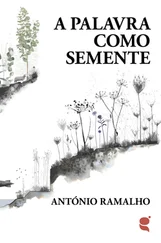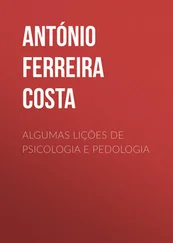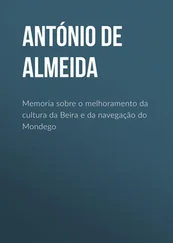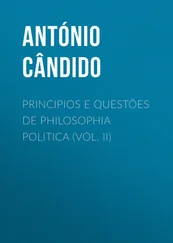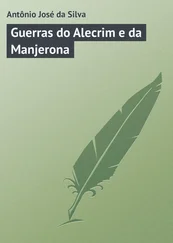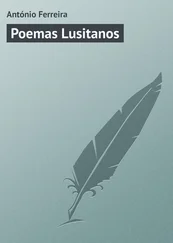António Antunes - The Splendor of Portugal
Здесь есть возможность читать онлайн «António Antunes - The Splendor of Portugal» весь текст электронной книги совершенно бесплатно (целиком полную версию без сокращений). В некоторых случаях можно слушать аудио, скачать через торрент в формате fb2 и присутствует краткое содержание. Год выпуска: 2011, Издательство: Dalkey Archive Press, Жанр: Современная проза, на английском языке. Описание произведения, (предисловие) а так же отзывы посетителей доступны на портале библиотеки ЛибКат.
- Название:The Splendor of Portugal
- Автор:
- Издательство:Dalkey Archive Press
- Жанр:
- Год:2011
- ISBN:нет данных
- Рейтинг книги:3 / 5. Голосов: 1
-
Избранное:Добавить в избранное
- Отзывы:
-
Ваша оценка:
- 60
- 1
- 2
- 3
- 4
- 5
The Splendor of Portugal: краткое содержание, описание и аннотация
Предлагаем к чтению аннотацию, описание, краткое содержание или предисловие (зависит от того, что написал сам автор книги «The Splendor of Portugal»). Если вы не нашли необходимую информацию о книге — напишите в комментариях, мы постараемся отыскать её.
The Splendor of Portugal — читать онлайн бесплатно полную книгу (весь текст) целиком
Ниже представлен текст книги, разбитый по страницам. Система сохранения места последней прочитанной страницы, позволяет с удобством читать онлайн бесплатно книгу «The Splendor of Portugal», без необходимости каждый раз заново искать на чём Вы остановились. Поставьте закладку, и сможете в любой момент перейти на страницу, на которой закончили чтение.
Интервал:
Закладка:
“Well?”
staring at us with a look of respect, as if we’d just returned from the depths of hell
“Are there dragons?”
dragons with smoke emerging from their throats, women with goat’s hooves for feet, fur-covered dinosaurs, trapdoors, lizards, bodies hanging from nooses, my father, me, and a grown woman with tears in her eyes, about to swear to her that yes, it’s true, but the spoilsport with the cigarette beating us to it in an explosion of cigarette ash
“Dragons what dragons ma’am it’s just seven or eight poorly dressed scarecrows they’re downright laughable”
my father, who could have strangled him for his impertinence, whispering into my mother’s ear, confidentially, summing up the entire world for her
“This country’s full of drunks don’t pay him any mind”
and after the Castle of Terrors the Hungarian Giant in a tent, a melancholic creature seated on a little stool, protected by a transparent sheet, looking at us, and when there were enough people in the tent an elderly man who sold the tickets for the spectacle and who must have been the Hungarian’s owner and maybe the brother of the little man with the cigarette zipped up the entrance to the tent, approached the transparent sheet, and ordered
“Stand up giant”
the melancholic creature abandoned his stool and stood next to a vertical ruler that read two meters and forty-three centimeters in capital letters, then sat back down, the elderly man unzipped the tent and we filed out, all of us thinking of suicide, infected by the sorrow of the sideshow, which slowly faded inside us, I was touched and I peeked through a hole in the canvas and there he was sitting still with his hands on his knees hoping that someone would take him back to Hungary where it never stops raining, the kind of rain that makes you catch cold, and where everyone is enormous and terribly sad, the people, the buildings, the villages, the streets, all of it in black and white, no colors, us on our way back to the plantation and me terrified that I’d suddenly become an orphan and be put on display in a tent
“Mom”
to make sure she was still there, that they were both still there, feeling reassured
“Never mind it’s nothing”
and so I fell asleep and they carried me up to my bed, I remember them going up the stairs muttering under their breath with each step
“Our little girl is made of lead”
me dreaming that they were undressing me while they undressed me, their voices far off in the distance
“Bend your arm Isilda”
I remember my joints being someone else’s, bearing no relation to my own elbows and knees, dreaming that they were turning off the light as they turned it off, thinking
“I’m going to be scared”
and even though I didn’t know where my doll was, I wasn’t scared, I listened to the clock, my parents’ footsteps, the sunflowers shrouded in fog mingled with thoughts of witches and the little man with the cigarette, putting his handkerchief back in his pocket
“Don’t worry ma’am only an idiot would be scared of this”
the little man with the cigarette who I looked for when I awoke and who wasn’t in the bedroom, it was just my dress with the sleeves inside out, my socks turned inside out, one sandal on either side of the room, my doll on the floor, the native soldiers who worked for the civil servant in Luanda, who once a year came to collect taxes and set up a little table out on the patio, the workers in a single-file line that stretched from the patio to the workers’ quarters, the chiefs, the wives of the chiefs, the lepers, the blind ones holding onto their children for support, the civil servant with his strongbox full of money called the names in his notebook, drew a cross next to the last names of those who paid and the native soldiers led the ones who didn’t pay over to the government truck which took them to work on the railroad for a whole season, laying railroad ties at the edge of the jungle, shackled to a post at night so they couldn’t run away and if they did run away they were hunted down like partridges, hiding in furrows in the fields, hopping around like terror-stricken animals as bullets flew at their feet, the same little animal feet weaving their way through the grass, the same wide-eyed gallop at first, the same gelatinous body after, the same gluttonous crows screeching and pushing each other aside, my father put his hand over my eyes
“Don’t look Isilda”
the little man with the ashy cigarette coughed into his unfolded handkerchief, pointing at the birds
“Don’t worry ma’am only an idiot would be scared of this don’t pay it any mind”
Damião and Fernando silent, Josélia silent, Maria da Boa Morte silent lying facedown in Corimba, a pool of paint, not blood, growing larger beneath her
anything you like but not blood, you can’t convince me that it was blood
“Enough of this it’s not funny get up”
the sea down below wasn’t the sea at all it was an illusion produced by oscillating pieces of paper and lights, the bay and the coconut palms and the governor’s palace and the fortress were all stage settings, the city was made of wood, fabric, and plaster in order to mimic Luanda and if we were to reach out and push it, we wouldn’t even need to push hard, it would fall over with a little hollow crashing sound, me to Maria da Boa Morte, shaking her shoulder
“I said get up didn’t I?”
silhouettes of houses, silhouettes of gardens, ridiculous plazas, buildings that were left unfinished, stairs that lead to nowhere, a plaster gnome in a backyard that’s not even there, a city they call Luanda but can’t really be Luanda because I’ve never been here before, actors masquerading as corpses, rags masquerading as children, pieces of Styrofoam masquerading as trees, dogs masquerading as dogs so they can be more doggish than ever, taught to rip out the fake intestines of the actors, to attack one another, feigning hunger, beggars who were directed
“Now stay here”
making their beds in what’s left of arcades, pastry shops, travel agencies, a city thought up by the ministers of state in Lisbon in order to trick us and force us to leave, to make us think
“All right Africa belongs to the Jingas it’s no longer mine it’s over”
then selling it to the Americans or renting it to the Russians, getting rich off of us in one fell swoop, we’re their blacks, my father used to explain, the same way that the blacks have their blacks and those blacks even have their blacks from one level to the next down to the depths of disease and misery, me on the Corimba highway but it wasn’t really Corimba
the same way that Samba Pequena wasn’t really Samba Pequena and Samba Grande wasn’t Samba Grande and Mussulo wasn’t Mussulo either
me on the Corimba highway at the place where my cousins used to live, ruins with no windows or doors, alleys littered with refuse, broken-down police jeeps, a mime playing the part of a dead man hanging against the wall, me surrounded by foreigners who bought Angola and carnival-prop detritus and ruins of buildings that were really cardboard, me to the dummies dressed up like soldiers who pointed their toy machine guns at me
“I’m not going to leave you can pretend to kill me but I’m not going to leave I’m not going to leave do you hear me you can do whatever you want but I’m not leaving here.”
24 December 1995
Someone said my name, maybe it was Luís Filipe, maybe my mother was calling me, or maybe I just fell asleep without realizing it, and my own mouth screamed
“Clarisse”
and I woke up to the morning in Estoril on the couch in the living room, scared of my own name. Not yet morning: the lights outside were still on, the windows didn’t display the palm trees or the sea, they reflected my seated body, my hands, which straightened out my blouse, fixed my hair, rubbed
Читать дальшеИнтервал:
Закладка:
Похожие книги на «The Splendor of Portugal»
Представляем Вашему вниманию похожие книги на «The Splendor of Portugal» списком для выбора. Мы отобрали схожую по названию и смыслу литературу в надежде предоставить читателям больше вариантов отыскать новые, интересные, ещё непрочитанные произведения.
Обсуждение, отзывы о книге «The Splendor of Portugal» и просто собственные мнения читателей. Оставьте ваши комментарии, напишите, что Вы думаете о произведении, его смысле или главных героях. Укажите что конкретно понравилось, а что нет, и почему Вы так считаете.
